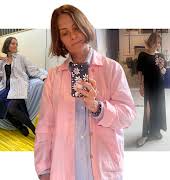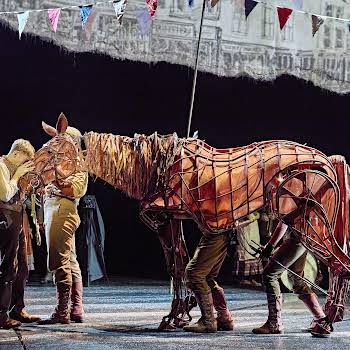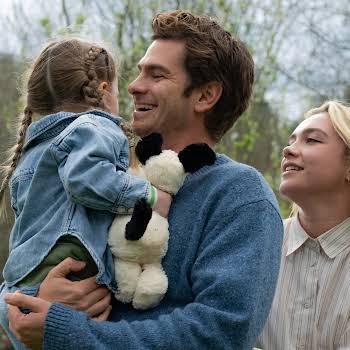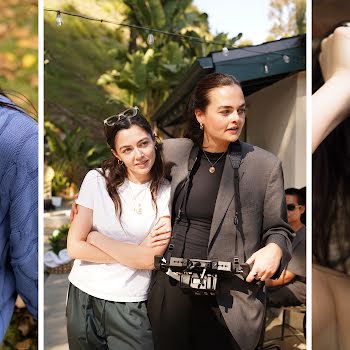
Disability on screen: ‘You’re progressive but you’re still making that backward story of seven dwarves living in the cave’
By Jennifer McShane
03rd Feb 2022
03rd Feb 2022
From 'Me Before You' to Sia's 'Music', Peter Dinklage's criticism of Disney spouting inclusivity without being mindful of how they are actually portrayed is not an isolated incident
The statistics around how many films there are about people with disabilities are embarrassingly low. In 2015, a report found that just 2.4% of characters in the top 100 Hollywood movies who spoke or had names had a disability. We have seen small progress since. Breaking Bad, Netflix’s The Politician, are two more recent examples that portrayed disability right on screen. Both characters who had a disability on screen (and in real life, as it so happened) weren’t simply added in as ‘token’ disabled characters to meet a diversity quota.
Generally, when we think of Hollywood’s version of disability on screen, we see it filtered through the male gaze. The Theory of Everything, My Left Foot, Me Before You – these are all films about disability, all with a male lead, and all played by fully able-bodied actors (an entirely separate discussion which is a constant problem) who go on to win awards. Out of the three, by way of example for this piece, the most problematic is Me Before You.
It tells the story of a wealthy city boy named Will Traynor (played by Sam Claflin), who becomes quadriplegic after being hit by a motorbike whilst crossing the road. The book and film follow his life after the accident and the complex relationship with his carer, Louisa Clarke (played by Game of Thrones‘ Emilia Clarke). Romance blossoms between the pair yet, Traynor ultimately commits assisted suicide unable to cope with living his new life as a disabled person.
Campaigners criticised the plot for its negative portrayal of those with disabilities, claiming that it endorsed assisted suicide as a justified means and response to anyone with the same disability. Author Jojo Myles pointed out that no one in the book or film condoned his decision, and that his was only one such story – but it does pander to negative stereotypes we see time and time again. In fact, it’s similar to the film The Sea Inside where the crux of the life of the disabled character is written knowing his life will ultimately end as a result of that disability – it’s a major plot point.
No real representation
And therein lies the root of the issue.
We see disabled characters on screen so little, that there is a sense at times from various studios or public figures that we should be grateful for getting a disabled character up there at all, with no real thought as to how that disability is actually represented.
Or we get diversity in terms of different cultures or ethnicities now at the fore of remakes looking to undo their problematic original choices, which doesn’t extend far enough.
And this is the point that actor Peter Dinklage rightfully makes in response to Disney’s “backward” forthcoming live-action adaptation of Snow White and the Seven Dwarfs.
Snow White and the Seven Dwarfs ?
A breakdown on the history of dwarfism, media representation, and why Peter Dinklage isn’t wrong.
Please RT, and share so we can spread awareness. pic.twitter.com/s1szFm0ozB
— v ?? (@hereisviolet) January 27, 2022
Dinklage, who has a form of dwarfism called achondroplasia, accused the studio of double standards by attending to racial diversity in its cast but falling back on other damaging stereotypes.
“I was a little taken aback by [the fact] they were very proud to cast a Latina actress as Snow White,” Dinklage told podcaster Marc Maron, “but you’re still telling the story of Snow White and the Seven Dwarfs”.
“You’re progressive in one way but you’re still making that f**king backward story of seven dwarves living in the cave. They were so proud of that, and all love and respect to the actress and the people who thought they were doing the right thing but I’m just like, ‘What are you doing?’”
The studio responded by saying they wanted to “avoid reinforcing stereotypes from the original animated film,” and are taking a “different approach with these seven characters and have been consulting with members of the dwarfism community.” But exactly how far that will go, remains to be seen.
Sia and her doomed film Music faced criticism for similar; casting Maddie Ziegler, a non-autistic actress, in the titular role, a nonverbal autistic character who moves in with her recently sober sister (Kate Hudson). As if that weren’t disappointing enough, the singer’s defensive response to this rightful anger from the autistic community was as tone-deaf as the project itself. Sia said she spent three years researching the project, based it on a friend, and said it would have been ‘cruel’ to use an autistic actor.
“I’ve never referred to music as disabled. Special abilities are what I’ve always said, and casting someone at her level of functioning was cruel, not kind, so I made the executive decision that we would do our best to lovingly represent the community,” she said in a tweet, the implication being that her “best” to represent the autistic community inauthentically should be taken as good enough.
Problematic physical attributes
Not forgetting the problem of physical attributes that have been used to portray characters as evil.
In No Time To Die, Daniel Craig’s final film as the secret agent, Bond appears opposite villains Safin (Rami Malek) and Blofeld (Christoph Waltz), both of whom have facial disfigurements. Scarring and facial disabilities have often been used to signify evil in the film franchise, including Javier Bardem’s misshapen jaw and teeth in Skyfall, as well as Mads Mikkelsen’s damaged eye in Casino Royale.
THREAD
Every time a new James Bond film is made, the producers are asked to reconsider their representation of disfigurement. Every time, they say they don’t care. The new film, out this week, is no exception. This time, two villains with facial disfigurements. Lucky us. pic.twitter.com/94KhvZLdJw
— Jen Campbell (is mostly elsewhere) (@jenvcampbell) September 28, 2021
It’s at least worth noting that in 2018, the British Film Institute stopped funding movies in which villains appear with facial disfigurements following a campaign by Changing Faces called I Am Not Your Villain. The charity called the practice a “lazy stereotype” and said it needs to end but the Bond franchise has yet to take the hint.
When we look back at the handful of films that portray disability, recent and otherwise, from the above to The Shape of Water, Rust and Bone to Children of A Lesser God what they all get right is that they are trying, to include disabled people on screen. But no film that I’ve watched as a disabled woman myself ever really gets the representation on the nose because the message out there – the fundamentally wrong message – is still that representation alone is enough.
So, let me rephrase that: Disability on screen and the correct representation of that disability is enough. Anything less needs to go.























